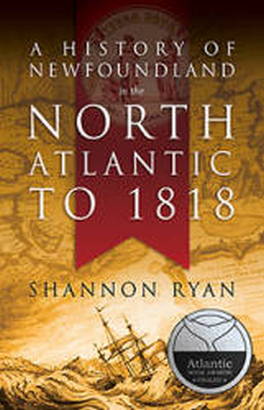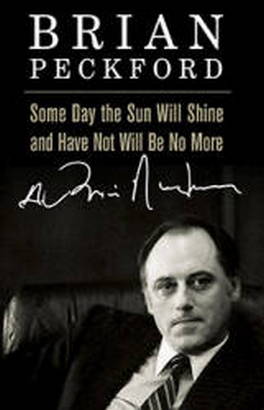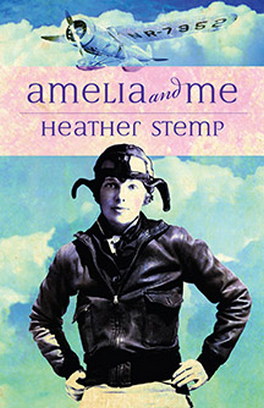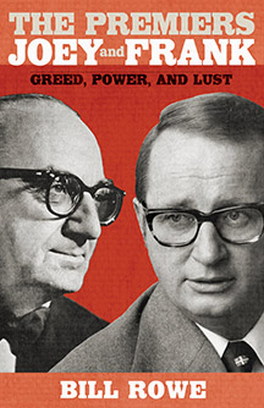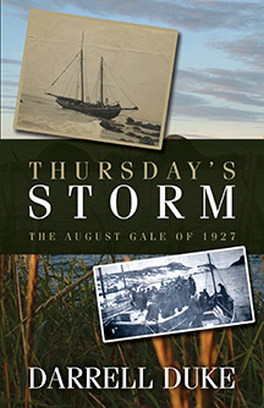Portland, Maine, 1910. An assembly gathers to listen to a fundraising lecture by the esteemed medical missionary Doctor Wilfred Grenfell. Grenfell has been working for eighteen years with trappers, fishermen, and their families on Newfoundland’s Great Northern Peninsula and in coastal Labrador. Thanks in part to the wild adventures recorded in his recent bestseller, Adrift on an Ice Pan, Grenfell is becoming ever more famous in North America. But tonight something is wrong. The man who appears before the audience as “the good doctor” suddenly receives a challenge from the floor. He neither looks, sounds, nor acts like the real Wilfred Grenfell. Thirty years later, during research for an article, journalist Judy Agar tracks down the Grenfell imposter living quietly in Massachusetts. It soon transpires that he and the real Grenfell share a common history which dates back to London in the 1880s. As medical students they shadowed each other through the corridors of a London hospital, the music halls, the evangelist missions, and the slums, each of them vying for the affections of a young nurse whose influence turned out to be decisive for them both.
The hiss of late summer encircles Judy as she steps from the car. Shiny leaves on the overhanging boughs struggle against the breeze, gaining brief succour from one another’s touch.
Letting the cigarette butt drop from her fingers, she skewers it into the gravel with the point of her shoe. The windows of the doctor’s house, a reflection of dark foliate movement, grow suddenly austere. Judy hopes she isn’t being watched. The metal gate pings open to her touch, and she hugs her satchel closer to her chest as though for protection. Trotting toward the black door, she picks up the cool brass knocker, wraps twice, and then steps back. Some late roses, their blooms darkening, climb up the trellis by the side of the front door. A falling petal touches the fur of her collar and lands by her feet with a pat. A young woman opens the door. She wears no uniform, but something in the way she stands aside and gestures Judy through—distraction in the eyes, tightness in the lips—labels her a maid, not a relative. Halfway down the hallway she catches up and overtakes Judy.
“Here,” she says, coming to a recess. She stoops and knocks at the door.
A voice answers, but Judy does not hear the speaker’s word. The young woman opens the door halfway and peers in.
“Miss Agar is here.”
Judy hears the flap of paper. The maid steps from the doorway.
“You should go in.”
Judy enters.
The man in the chair seems spryer than Judy imagined. She heard he wasn’t well. He takes off his glasses, folds over the newspaper on his lap—she catches the headline: Air Raids on London—lays glasses and newspaper on the coffee table. Despite her protests, he stands. The hand she takes is pink, warm, and padded. Something alive dances behind his eyes, but she can’t decide on the phrasing. Is it a twinkle or a glint; the warmth of flame or the sparkle of ice? Later, she tells herself, plenty of time for purple prose. Secure the interview first.
“Thank you so much for agreeing to speak to me.” She folds herself into the proffered chair. As he returns to his seat, she’s struck both by the view through the Georgian windows—impressive undulating garden, some elms and a huge copper beech nodding slightly in the wind—and by the fact that the seating arrangement has given her sole possession of it. The doctor faces the rather dim inward corner of the room where shade-loving plants spread their spindly leaves. It seems incongruous somehow that he has chosen to look away from the sun; the lines around his eyes are reptilian, suggesting a history of quick and nervous movements, and of energy drawn from sunlight. Laying her satchel at her side, she fingers the buckle, waiting out the formalities. Her eyes lock for a moment on a silver tray, a half-full decanter, and a trio of glasses on the table. This seems out of place too.
“I’m flattered to be asked,” he says, crossing his legs, and sliding his hand over the tweed of his trousers—an old flirt, she thinks. It makes sense, somehow. “And surprised. It’s not often an obscure MD like myself is the subject of newspaper speculation.”
Surprised. Does he mean it? Or is he playing with her? She smiles. “Periodical speculation.”
“Ah.” He claps his hand on his thigh. “A world of difference, I’m sure.”
“Well, we’re not into sensationalism, so . . .” So what? The end of her sentence dangles. To hide her embarrassment she reaches once more for the satchel, opens the buckle, and slides out her notebook. She was hoping that the distinction between newspaper and magazine, especially one with a reputation as toothless and benign as Polar Adventures, would make less threatening the area into which she must soon trespass. But the hanging clock on the wall next to the barometer might already be ticking through layers of misunderstanding. What if he just isn’t the man? There was always that chance her sources were mistaken.
“And this is a special subject . . .” she falters.
“The age of adventure!”
She looks up to see the doctor’s eyes wide with dramatic irony.
“Quite,” she echoes, “the age of adventure.”
“Polar Adventures of Boston. How large is your distribution?”
“We have subscribers all over North America.”
He nods sagely to show he’s impressed. She suspects subterfuge. “All those people interested in polar exploration?”
“The title Polar Adventures is misleading. We don’t only cover adventures on or near the poles, but also adventures anywhere between the poles, which of course means pretty much anywhere.”
“Ah, that explains it!”
“In this case, we are delving into the era of adventure and missionary zeal,” she says, trying to press on now. “That’s the subject of the main article.”
“The ‘main article’?” he asks. She wonders if she sees a smile playing in the corners of his lips.
“Yes, this is in the nature of a sidebar.”
His face remains questioning. Her pencil hovers over the blank sheet before her.
“You lived through the period of time . . . personally knew the kinds of men who travelled and returned to the lecture circuit, and there was that one occasion—“
“Tell me, Miss Agar,” he breaks in, sliding his fingers into a steeple on his chest. She’s surprised at the force of the interruption; it wasn’t rude, and, in truth, she’s relieved, but he’s stopped her dead. “Are you, yourself, the author of this main article?”
“No. The editor himself plans on doing the piece.”
“Ah,” he said. “Then both you and I are but minor characters.”
She returns his conspiratorial smile, tries to give him a hint of sympathy and fellow feeling. He’s very close, it seems, to admitting he is the man. “Yes, indeed. We’re interested in the allure of the lecture tour, bringing colour, stories of good works, into the lives of Americans—”
“Who is the subject of the main article?” The interruption once more has the weight of such calm authority, it demands a straight and immediate answer.
“Sir Wilfred Grenfell,” she says, her shoulders sinking guiltily.
“And you say your editor plans on doing the piece. Has he secured an interview with the good doctor?”
“He is hoping, but Sir Wilfred is not in the best of health.”
“So I hear.”
“You keep in touch with Sir Wilfred?”
The smile again, dry and ironic. “No,” he says.
“And yet you have, in many ways, lived parallel lives.” A tingle goes through her and she jockeys forward in her chair. “You trained together in London, and you have retired practically next door.”
“Next door?” he asks, whimsy coming into his eyes.
“Vermont and Massachusetts are adjacent states.”
“Ha, Americans and their sense of distance!”
“And between that time and now . . .”
“Yes?” An innocent tilt of the head.
“In between, there was . . . that incident in Portland.”
“The incident, yes.”
At last, a clear admission.
“A practical joke, perhaps?”
Her pencil aches to start writing, but she holds off. It’s forbidden to record an interviewee’s mere echo of a question. He smiles slowly and she has a sudden sense that he knows this rule and is way ahead of her. “Was it a joke?” she asks. Yes or no would be something.
“Tell me,” he says reaching to the coffee table and taking up his spectacles. His free hand dips into his trouser pocket, pulling out a white handkerchief. He begins to polish up the lenses. “From the photographs you have seen, do you think I look like Grenfell?”
“A little, yes.”
“So a random audience assembling in a hotel in Portland, Maine, might easily let themselves be deceived.”
He breathes hard on the lenses and continues rubbing.
“But someone gave you away.”
“Yes.”
“Bad luck for you,” she ventures.
He slides his glasses back on.
“So it wasn’t just a joke, then?”
He gives the merest shrug and leans forward, reaching for the decanter. “You don’t mind if I indulge, do you?”
She tries to keep her eyes from glancing at the clock. It’s 10:40 a.m. He catches her eye and smiles as the pale liquid sloshes into a glass. “Will you have one?”
“It’s—”
“A little early I know, and it’s whisky, not sherry.” He lays down the decanter. “Grenfell had his pipe. I never smoked. Although, of course, I had to learn so I could convince people I was him.”
Picking up the glass, he sinks back slowly into the leather.
The tingle returns. She’s on the verge of something bigger than she had hoped for. For one mute moment her lips mouth the air. Finally the question forces itself into words.
“You mean it wasn’t the first time?”
The old doctor gives a sudden laugh and holds up his glass as though for a toast. “Well now, you’re the first person who has ever asked.” His smile turns rueful. “It was the last, though. We couldn’t risk it again.” He takes a sip and sighs, pleasure mingling with sadness. “Let me tell you how it all came about.”
A rousing good read.-- The Compass --
Butler’s book (published by Pennywell Books/Flanker Press) is laced with mystery and romance. It keeps the reader turning pages to find out what happens next.-- The Aurora --
This novel truly is suspenseful, nail biting and enjoyable all at the same time. Butler provides a thrilling situation of a usual mundane historical event in an extremely well written piece.-- Tint of Ink --
Butler writes succinctly, keeping his plot as tidily structured, as masterfully crafted as a shipbuilder bending hull planks to meet perfectly at the prow; or, plotting as niftily as Uncle Jack building a punt.-- The Packet --
It’s an entertaining story. Butler’s usual impeccable historical research is augmented by an intriguing plot that doesn’t really conclude until the final pages.-- Northeast Avalon Times --
This novel is eloquent and mysterious in its turns of phrase and imagery. Paul Butler provides a deft framework wherein time shifts occur while at the same time providing continuous flow of characterization.-- Historical Novels Review --
I was so dazzled by [The Good Doctor] - so wholly original and such an interesting way to look at how legends are made. And the careful construction of the characters' motivations and complex emotional landscapes - utterly brilliant. I'm recommending it like crazy!-- Leslie Vryenhoek, Writer --

-249173.jpg)












